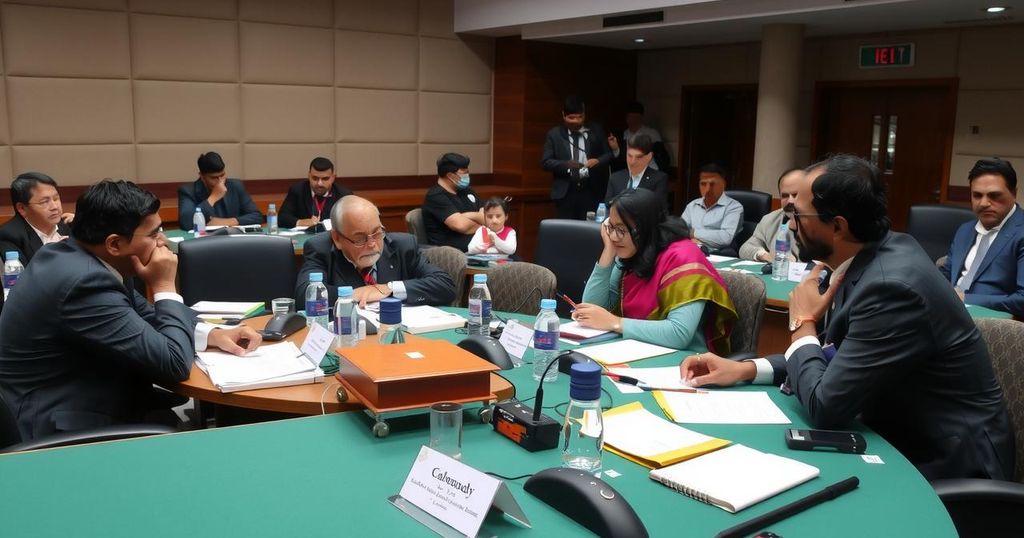The ICJ is deliberating on climate change obligations, with Bangladesh as a key participant advocating for universal commitments. The advisory opinion request aims to clarify states’ responsibilities under international law regarding greenhouse gas emissions and protections for vulnerable nations. Bangladesh’s role emphasizes the need for equitable responsibility-sharing and highlights the urgency of financial support from high-emitting states.
The International Court of Justice (ICJ) is currently deliberating on the climate change obligations of states following a unique advisory opinion request led by Bangladesh and Vanuatu. As the seventh most climate-affected country, Bangladesh has been vocal in international forums, advocating for universal commitments to reduce greenhouse gas emissions. The ICJ’s opinion seeks to clarify legal responsibilities under international law regarding greenhouse gas emissions and the consequent obligations toward vulnerable countries. Notably, Bangladesh’s participation in this process reflects its urgent need for global support and action against climate change.
Climate change poses severe risks that disproportionately affect vulnerable nations like Bangladesh, prompting these states to seek clarity on international legal obligations related to environmental dependencies. The emergence of international courts as platforms for legal opinions on climate obligations underscores the evolution of international law confronting environmental crises. Bangladesh’s active role in both the International Tribunal for the Law of the Sea (ITLOS) and the ICJ highlights its commitment to bolster legal frameworks that bind states to combat climate change, ensuring that obligations are extended universally, especially to high-emission countries.
The forthcoming advisory opinion from the ICJ is eagerly anticipated, given its potential to establish essential climate-related obligations under international law. Bangladesh’s proactive stance emphasizes the importance of equitable responsibility-sharing between industrialized and developing nations in combating climate change. The alignment of domestic laws with international legal positions is crucial for Bangladesh to effectively address current climate challenges and enhance its resilience against future impacts.
Original Source: www.newagebd.net







